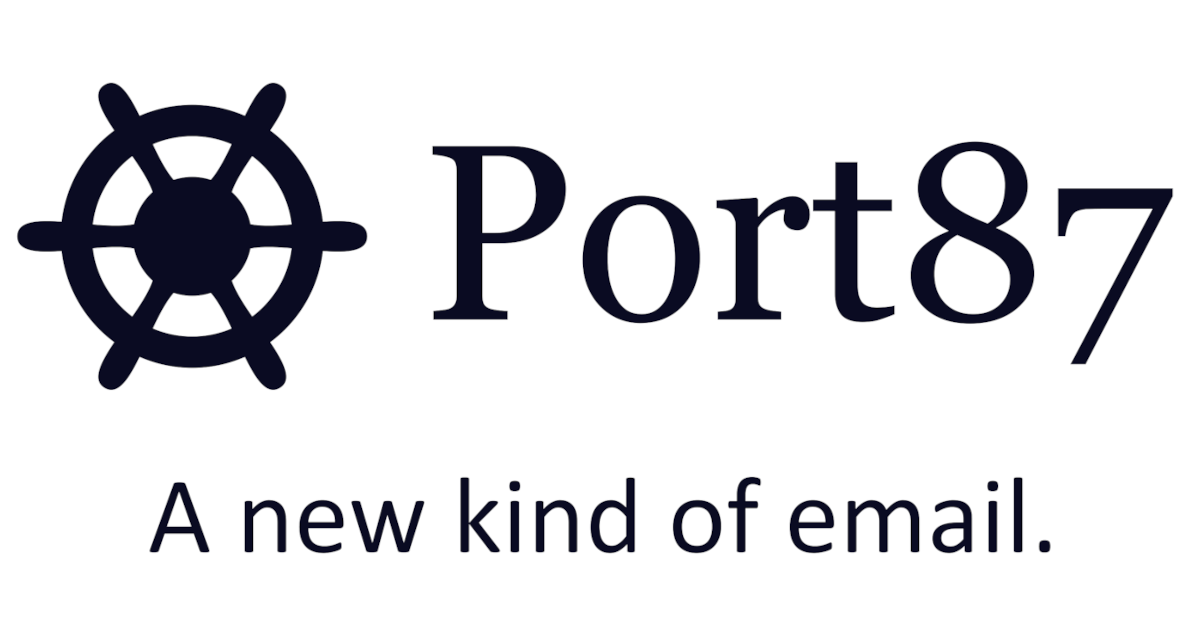- cross-posted to:
- [email protected]
- cross-posted to:
- [email protected]
Hi, I’m Hunter Perrin, and I made a new email service called Port87.
Gmail was a great email service back in 2006, but now it just sucks. They put ads in your inbox that look like unread emails to trick you into clicking them. To me, that means Gmail is malware.
I’ve been degoogling my life for the past 7 years, and Gmail is the last Google service I depended on. I love ProtonMail and use it too, but I developed a new way to sort email automatically, and wanted to write my own service based on it.
Port87 lets you use a tagged address like [email protected], and that automically creates a “netflix” label and puts all email to that address in it. This helps keep your email organized automatically, and protects against spam and phishing.
The database abstraction library I wrote for Port87 is called Nymph.js, and it’s open source. Also the UI library I wrote is called Svelte Material UI, and it’s open source too.
I hope you all like it, and hopefully it can help migrate away from Gmail.



That’s why you’d use screening on [email protected]. Spam mail generally doesn’t have a valid Return-Path, and if it does, it’s probably not a monitored mailbox, so the spammer wouldn’t even receive the screening email, let alone follow the instructions in it.
(By not valid, I mean a return path that leads to an actual mailbox. It can be a valid email address, just a bogus or spoofed one.)
I think you are misconstruing spam in this context.
While you are right about “spam” mail not meeting valid header details or authentication, a lot of “spammy” content does - marketing emails.
fastmails aliased emails allow for users to generate unique email addresses for each individual service they sign up for. What this enables is that when that service inevitably sells that email address to another spammy, potentially legitimate, but still spammy provider. They can then unsubscribe from that alias email entirely.
What you are describing seems less focused on protecting one address from being sold and shared. I think you need to accommodate for the fact that businesses sell lists of email addresses against their users wishes. That use case doesn’t seem to be met yet
You can block a label in Port87. So, if some place sells the address you gave them, you can block that label, and that address will start rejecting emails. The error response that is returned to their server is “that mailbox doesn’t exist”, so if they look at the bounce message (which they almost definitely won’t do), it will look like that email address was deleted.
Yeah but your pattern is to re use labels (eg: [email protected]). If you suggest users reuse the labels they lose their effectiveness in working as aliases.
You are designing for a different feature set, I see this, however I think you may have some blind spots with what other email inbox providers offer and what users are looking for.
Good luck on the journey, your product already seems quite feature rich :)
Yes, you would reuse a label like “friends” to give out to all your friends, but you’d also enable screening on that label, so any automated sender (spam is almost always sent by automated senders) wouldn’t pass the screening challenge, and their email wouldn’t be delivered.
So there are basically two different types of labels, one for bots and one for people. The bot ones should be single sender, something like “netflix”, and the people ones can be single sender like “davesmith” or multiple like “bookclub”, and you can enable screening on them.